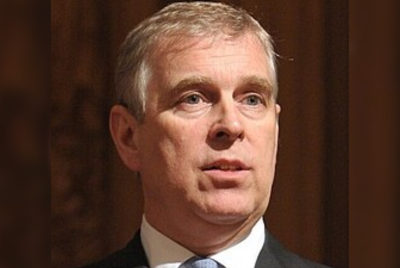UK Health Secretary Considers Fines For No-Shows After £1B Lost Due To Skipped Doctor Appointments

The UK's National Health Service (NHS) is facing mounting pressure to address the issue of missed appointments, with nearly £1 billion lost annually due to patients not attending their scheduled consultations. With a waiting list of almost 8 million people and another 1.4 million waiting to access community mental health and learning disability services, Health Secretary Wes Streeting is now considering a proposal to fine patients who fail to show up without notice.
Wes Streeting Softens on Fines for NHS No-Shows
Ahead of the next general election, Secretary of State for Health and Social Care Wes Streeting, who had previously dismissed fines as a "slippery slope," has indicated that the idea might be revisited if current efforts to reduce missed appointments prove unsuccessful. In an interview with Times Radio, Streeting stated, "No one wants to punish patients, but we can't ignore the fact that missed appointments are costing the NHS dearly." He noted that missed appointments in 2022 alone cost the NHS close to £1 billion, stressing the need for more efficient management of appointments.
While Streeting is not actively pushing for fines at the moment, he acknowledged that it is a potential option if alternative methods fail to improve attendance rates. He also highlighted the importance of addressing systemic issues contributing to missed appointments, such as delays in patients receiving appointment letters.
Rishi Sunak's £10 Fine Proposal and Its Backlash
Prime Minister Rishi Sunak initially floated the concept of penalising patients for missed appointments in 2022, following reports that around 7.5 million NHS appointments were missed between 2021 and 2022. Sunak's proposal aimed to impose a £10 fine for repeat no-shows after giving patients the "benefit of the doubt" for their first missed appointment. Sunak promoted the idea as part of his broader plan to reduce waiting lists, which he called his "No. 1 public service priority."
However, the proposal was met with swift criticism and was eventually shelved. The British Medical Association (BMA) and the Royal College of General Practitioners voiced strong opposition, arguing that fines would only exacerbate health inequalities and discourage vulnerable patients from seeking medical care. "Penalising patients for missing appointments overlooks the underlying causes," a BMA spokesperson said. "Patients may miss appointments for reasons beyond their control, such as illness, transport issues, or family emergencies."
Missed Appointments: More Than a Simple No-Show
Experts have pointed out that missed appointments are often a symptom of deeper issues within the healthcare system. Some patients may forget their appointments, especially when scheduled months in advance and reminders are delayed. Others may face logistical challenges like unreliable transport, childcare responsibilities, or financial barriers. Mental and physical health problems can also prevent individuals from attending their appointments.
Streeting acknowledged these concerns, stating, "We need to look at why people are missing appointments and address those barriers, whether it's late notification, difficulties with transport, or simply forgetting. Fines should be a last resort, not the first solution."
Proposals to Improve NHS Accessibility
The NHS Confederation has suggested several improvements to the system in an effort to combat the problem of no-shows and make the NHS more accessible. These include offering extended opening hours, providing more weekend appointments, increasing home visits, and expanding the use of remote consultations. Additionally, there are calls for better digital tools to help patients manage their appointments, including a more user-friendly NHS app that allows for easier scheduling, rescheduling, and reminders.
Increased NHS Funding Tied to Efficiency Improvements
In response to the NHS's growing financial strain, Wes Streeting also confirmed that the upcoming Budget will include additional funding for the health service. For the fiscal year 2024-2025, the NHS budget is expected to rise to £192 billion, an increase of £1.1 billion. However, this extra funding stipulates that the NHS must improve productivity.
Chancellor Jeremy Hunt recently announced £3.4 billion in new funding to modernise the NHS and improve its efficiency. Of this, £430 million will be allocated to support digitalisation, making it easier for patients to access services and manage their care. Another £1 billion will go toward overhauling data usage, with the aim of cutting down on administrative tasks. A further £2 billion has been earmarked for updating IT systems, including adopting artificial intelligence (AI) to streamline processes. Examples of AI already being trialled in the NHS include C2-Ai, which tracks patients automatically, and Lenus Health's AI system, which predicts the onset of chronic conditions.
The Road Ahead
While fining patients remains contentious, the NHS faces immense pressure to tackle inefficiencies and reduce waiting times. As Streeting put it, "Every missed appointment is a missed opportunity for someone else who desperately needs care." The future of the fine proposal remains uncertain. Still, the broader challenge of improving the NHS's appointment system and ensuring patients attend their consultations is unlikely to fade away anytime soon.
© Copyright IBTimes 2025. All rights reserved.






















